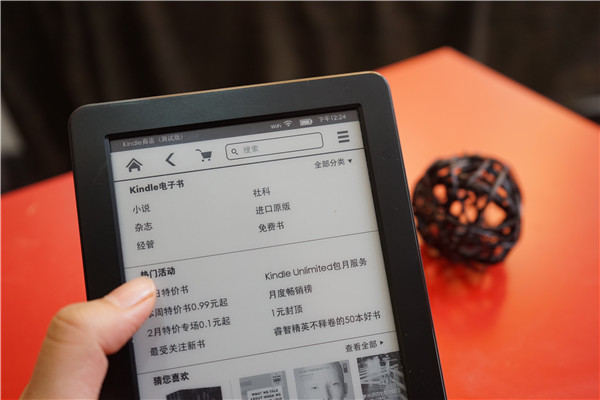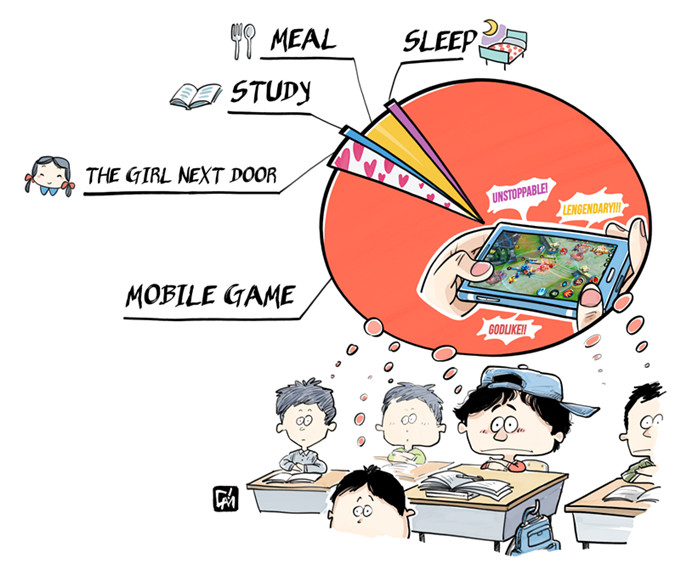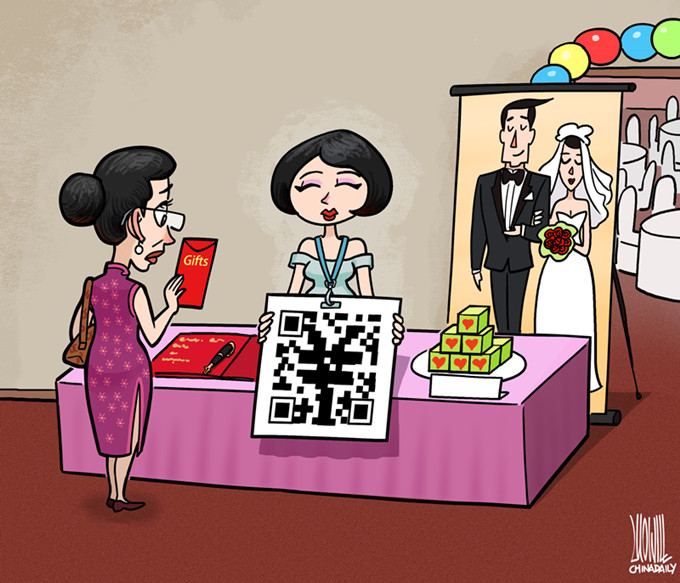Joy of reading is being lost in the digital age
 |
|
A Kindle tablet that provides access to Chinese language e-books. LI SANXIAN/CHINA DAILY |
In Israel people reportedly read about 60 books a year on average. The huge gap between the two peoples' reading habits speaks volumes about the necessity of raising the public's awareness of developing good reading habits.
And despite the slight increase in the number of books read on average, it is a worrying trend that more and more Chinese adults engage in casual and superficial reading.
A considerable proportion of the books Chinese adults read last year were "internet literature", which is invariably of lower quality, but easier to swallow than classic books.
Reading a half-million-word online romance takes only several hours. But this kind of reading is more about killing time than learning and thinking.
Smartphones and other electronic gadgets are a key factor in depriving the people of the time that would otherwise be spent on reading books.
Also, many middle-class families in big cities would rather spend exorbitant amounts of money to buy a property in a district with good schools rather than develop a healthy reading atmosphere at home.
China regards innovation as one of the major drivers of its economy, and tries its best to promote innovation in industries, education and governance. But no nation can thrive on innovation if its people do not enjoy reading.



















